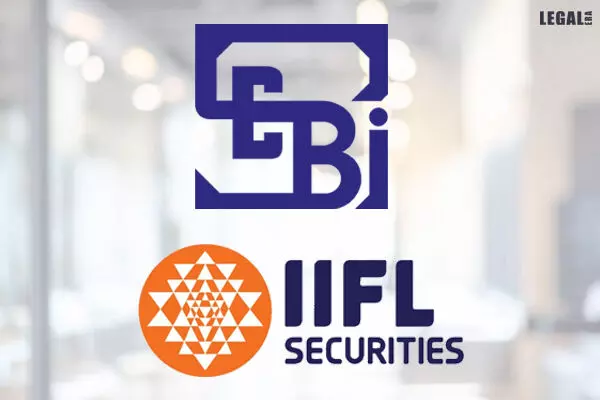- Home
- News
- Articles+
- Aerospace
- Artificial Intelligence
- Agriculture
- Alternate Dispute Resolution
- Arbitration & Mediation
- Banking and Finance
- Bankruptcy
- Book Review
- Bribery & Corruption
- Commercial Litigation
- Competition Law
- Conference Reports
- Consumer Products
- Contract
- Corporate Governance
- Corporate Law
- Covid-19
- Cryptocurrency
- Cybersecurity
- Data Protection
- Defence
- Digital Economy
- E-commerce
- Employment Law
- Energy and Natural Resources
- Entertainment and Sports Law
- Environmental Law
- Environmental, Social, and Governance
- Foreign Direct Investment
- Food and Beverage
- Gaming
- Health Care
- IBC Diaries
- In Focus
- Inclusion & Diversity
- Insurance Law
- Intellectual Property
- International Law
- IP & Tech Era
- Know the Law
- Labour Laws
- Law & Policy and Regulation
- Litigation
- Litigation Funding
- Manufacturing
- Mergers & Acquisitions
- NFTs
- Privacy
- Private Equity
- Project Finance
- Real Estate
- Risk and Compliance
- Student Corner
- Take On Board
- Tax
- Technology Media and Telecom
- Tributes
- Viewpoint
- Zoom In
- Law Firms
- In-House
- Rankings
- E-Magazine
- Legal Era TV
- Events
- Middle East
- Africa
- News
- Articles
- Aerospace
- Artificial Intelligence
- Agriculture
- Alternate Dispute Resolution
- Arbitration & Mediation
- Banking and Finance
- Bankruptcy
- Book Review
- Bribery & Corruption
- Commercial Litigation
- Competition Law
- Conference Reports
- Consumer Products
- Contract
- Corporate Governance
- Corporate Law
- Covid-19
- Cryptocurrency
- Cybersecurity
- Data Protection
- Defence
- Digital Economy
- E-commerce
- Employment Law
- Energy and Natural Resources
- Entertainment and Sports Law
- Environmental Law
- Environmental, Social, and Governance
- Foreign Direct Investment
- Food and Beverage
- Gaming
- Health Care
- IBC Diaries
- In Focus
- Inclusion & Diversity
- Insurance Law
- Intellectual Property
- International Law
- IP & Tech Era
- Know the Law
- Labour Laws
- Law & Policy and Regulation
- Litigation
- Litigation Funding
- Manufacturing
- Mergers & Acquisitions
- NFTs
- Privacy
- Private Equity
- Project Finance
- Real Estate
- Risk and Compliance
- Student Corner
- Take On Board
- Tax
- Technology Media and Telecom
- Tributes
- Viewpoint
- Zoom In
- Law Firms
- In-House
- Rankings
- E-Magazine
- Legal Era TV
- Events
- Middle East
- Africa
SAT Overturns SEBI Order, Allows IIFL Securities to Resume Client Onboarding

SAT Overturns SEBI Order, Allows IIFL Securities to Resume Client Onboarding
The Securities Appellate Tribunal (SAT) on Thursday nullified an order by the Securities and Exchange Board of India (SEBI) restricting IIFL Securities from onboarding new clients for two years. Additionally, the SAT reduced the fine levied on the brokerage firm from ₹1 crore to ₹20 lakh. This decision came in response to an appeal filed by IIFL Securities, previously known as India Infoline Ltd., against SEBI's order issued in Jun,
The capital markets regulatory body had issued a two-year ban on IIFL Securities onboarding new clients, citing alleged misappropriation of client funds
Justice Tarun Agarwala (Presiding Officer) and Meera Swarup (Technical Member) of the Securities Appellate Tribunal (SAT) overturned the order by SEBI, stating that no misuse of client funds occurred. By misinterpreting the 2016 circular regarding the non-funded portion of the bank guarantee, an attempt was made to portray misuse of client funds, which is erroneous.
In its order, the SAT further clarified that IIFL Securities had not failed to segregate client funds as alleged. The Tribunal asserted that these funds were not misused for any unauthorised purposes, and therefore, no penalty under the Securities Contracts (Regulation) Act (SCRA) could be imposed on the brokerage firm.
While reversing SEBI's order, the Appellate Tribunal observed that IIFL Securities failed to comply with the 1993 circular regarding client bank account naming. The Tribunal, however, concluded this was a technical breach and no misuse of client funds occurred.
In light of the "technical breach," the Tribunal determined a total penalty of ₹20 lakh would be appropriate.
SEBI's June order alleged that IIFL, from April 2011 to June 2014, failed to maintain proper segregation between its funds and those of its clients. During this period, they were accused of misusing funds from credit balance client accounts to settle trades for both their own proprietary account and the accounts of debit balance clients. Furthermore, a March 2017 inspection revealed similar violations occurring during the fiscal years 2015-16 and 2016-17.
SEBI's order was issued subsequent to conducting multiple inspections of IIFL's books of account for the period April 2011 to January 2017.



